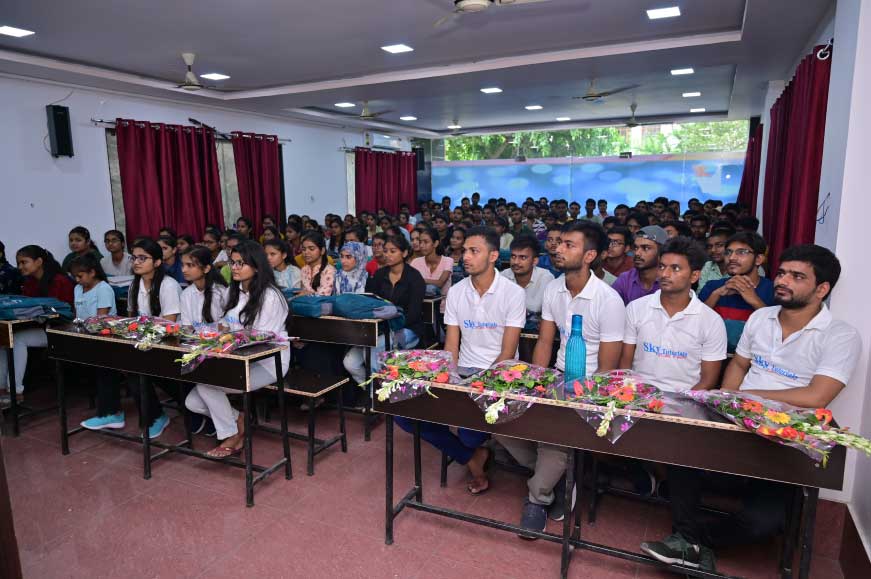
Overview
Sky Tutorials is a renowned coaching institute in Varanasi that specializes in preparing students for competitive exams like NEET, IIT-JEE. Their expert faculty and comprehensive study material have helped students achieve their dreams of getting into top medical and engineering colleges.
If you are looking for the best NEET coaching in Varanasi, Sky Tutorials should be your top choice. Their NEET coaching program is designed to cover all aspects of the syllabus, provide regular tests and assessments, and ensure that students are well-prepared for the exam. The faculty at Sky Tutorials is experienced and dedicated to helping students achieve their goals.
In addition to NEET coaching, Sky Tutorials also offers JEE coaching, , and other programs to help students excel in their academic pursuits.
Sky Tutorials – Best NEET Coaching in Varanasi | JEE Coaching
Looking for the best NEET coaching in Varanasi? Look no further than Sky Tutorials. Our expert faculty, comprehensive study material, and regular tests and assessments ensure that our students are well-prepared for the exam. We also offer JEE coaching, Olympiad coaching, and other programs to help students excel in their academic pursuits.
In India, students who want to enroll in medical and dentistry programmes must pass the National Eligibility and Entrance Test for Undergraduate Courses, or NEET UG. The viability of holding the once-a-year NEET UG examination twice a year has been the subject of continuing discussion and disagreement. We will examine the advantages and disadvantages of such a move in this blog and determine whether it is a sensible and useful course of action.
Pros of Conducting NEET UG Twice a Year
1. Increased Opportunities:
One of the main benefits of holding the NEET UG exam twice a year is that it gives candidates additional chances to take the test. This can be especially helpful for those who could miss the initial attempt owing to a variety of factors, such as illness or unanticipated events.
2. Reduced Pressure:
With two chances each year, students are under less pressure to perform extraordinarily well on their first try. On their second attempt, they can work to raise their results in the hopes of getting into a better school or course.
3. Improved Preparedness:
Exams taken twice a year can push students to maintain a high level of preparation all year long. This may result in greater knowledge retention and a greater comprehension of the subjects.
4. Better Resource Allocation:
Holding NEET UG twice annually could help disperse the exam load more equally, lowering the possibility of logistical and administrative difficulties brought on by holding a single, large exam.
Cons of Conducting NEET UG Twice a Year
1. Increased Stress:
While some students would profit from the expanded chances, others might find the idea of taking two tests a year intellectually hard and stressful. For some people, the pressure to succeed in both attempts may be too much.
2. Resource Management:
To conduct the NEET UG exams twice a year, a significant number of resources, such as employees, infrastructure, and examiners, are needed. The conducting body’s resources may be put under stress as a result.
3. Coverage of the Syllabus:
With fewer days between tests, it may be more difficult to cover the whole syllabus. Students could feel stressed during the preparation process, which might undermine their comprehension of important ideas.
4. Impact of the Coaching Industry:
India’s coaching sector plays a major role in NEET UG preparation. Due to the potential requirement to engage in coaching classes for an extended length of time, administering the exam twice a year may place an extra financial strain on students and their families.
Conclusion
The viability of holding the NEET UG twice a year is a subject that has to be carefully considered. Although there are many benefits, such as more opportunities and less stress, there are also difficulties with resource management and student stress. The choice should ultimately be made after carefully weighing the advantages and negatives, keeping in mind the welfare of the students and the general success of the testing procedure. Striking a balance between offering opportunities and making sure the test retains its integrity and equity is crucial.

